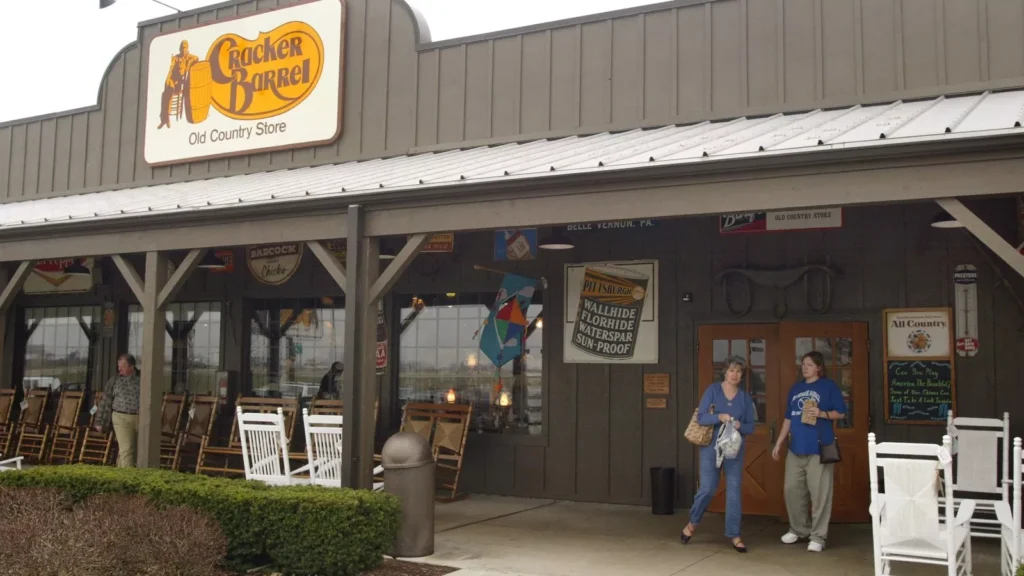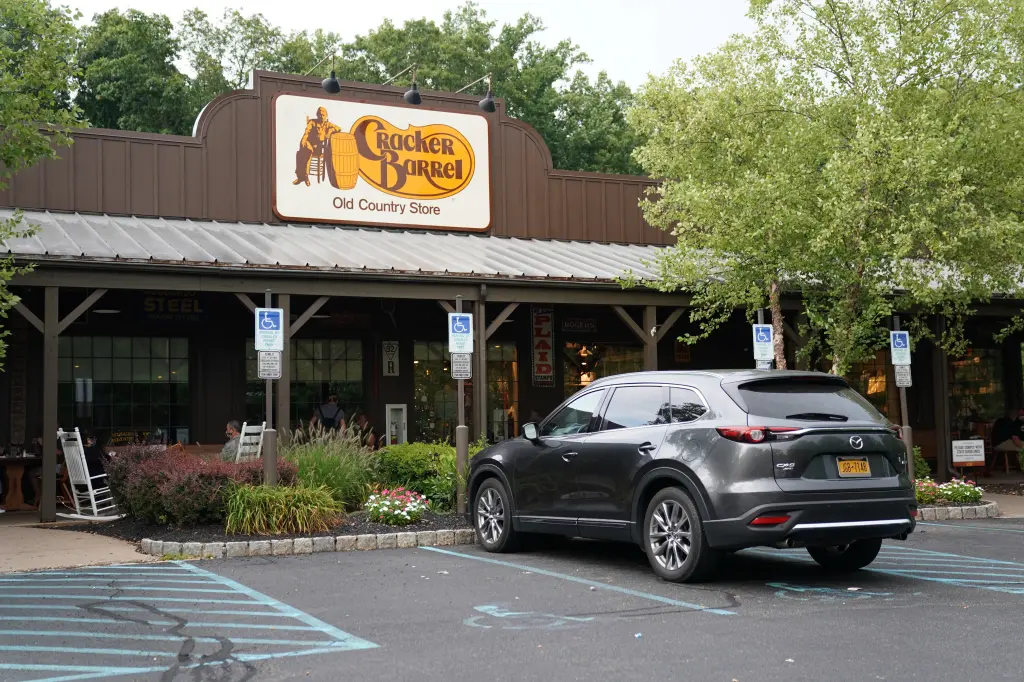Cracker Barrel is facing serious allegations about its diversity practices. America First Legal (AFL), a conservative legal group, has filed a complaint accusing the popular restaurant chain of discriminating against white and male employees in the name of Diversity, Equity, and Inclusion (DEI). The legal challenge has sparked national attention and reignited the debate about how companies implement DEI initiatives.
Let’s break down what this lawsuit is about, what both sides are saying, and what it means for employees and businesses across the country.
What Is the Cracker Barrel DEI Lawsuit About?
The Cracker Barrel DEI lawsuit, filed by America First Legal, alleges that Cracker Barrel’s DEI policies unfairly favor women and people of color in hiring, promotions, and other workplace decisions. According to AFL, these policies amount to reverse discrimination—especially against white and male staff.
AFL argues that Cracker Barrel’s practices violate Title VII of the Civil Rights Act of 1964, which prohibits employment discrimination based on race, color, sex, or national origin. The organization also claims the company’s public statements and internal documents show a clear bias.
Cracker Barrel, known for its southern-style comfort food and country-themed restaurants, has not yet publicly commented on the details of the lawsuit. However, the case is quickly becoming a high-profile example in the growing legal battle over DEI in corporate America.
What Does America First Legal Claim?
America First Legal is a legal advocacy group led by Stephen Miller, a former advisor to President Donald Trump. The group has been challenging DEI efforts across multiple corporations and institutions. In this case, AFL alleges the following:
- Cracker Barrel created programs that intentionally favor women and minority candidates for leadership roles.
- White and male employees were excluded from development opportunities and advancement programs.
- The company’s DEI strategy is designed to meet racial and gender quotas, which AFL says is illegal under federal law.
- Public statements by Cracker Barrel leadership show a pattern of preference-based hiring and promotions, ignoring merit or qualifications.
AFL’s lawsuit is based on a civil rights complaint submitted to the U.S. Equal Employment Opportunity Commission (EEOC). They hope the EEOC will investigate and eventually pursue action against the company.
Cracker Barrel’s Diversity Goals Under Scrutiny

Cracker Barrel has publicly shared its DEI efforts in recent years. The company has said that it is committed to building a more inclusive workplace and has focused on increasing representation in leadership.
According to its corporate website and social media posts:
- The company has promoted employee resource groups for women, Black employees, and LGBTQ+ staff.
- They have pledged to diversify their leadership pipeline and create more opportunities for underrepresented groups.
- Internal training programs have focused on unconscious bias and creating “equity-centered” leadership.
Supporters of DEI initiatives argue that such programs are essential to correcting long-standing imbalances and building a fairer work environment. However, critics like AFL say these efforts can cross the line into illegal favoritism, especially if they disadvantage others based on race or gender.
What Federal Law Says About DEI and Employment
The heart of the Cracker Barrel DEI lawsuit lies in the interpretation of Title VII of the Civil Rights Act. The law does not allow any form of discrimination, even if the intention is to improve diversity.
Courts have generally upheld that companies cannot make employment decisions based solely on race or gender, even with good intentions. This means:
- Favoring a minority candidate just to improve diversity numbers can be illegal.
- Excluding someone from training or promotions because they are white or male violates federal law.
- Companies can create diverse pipelines, but decisions must ultimately be based on merit.
This legal tightrope is becoming more common as DEI programs spread across corporate America.
Growing Backlash Against Corporate DEI Efforts
Cracker Barrel is not alone in facing legal challenges over diversity programs. America First Legal and other conservative organizations have recently filed or supported similar lawsuits against:
- American Express
- Morgan Stanley
- Starbucks
- McDonald’s
- Amazon
These lawsuits argue that corporate DEI policies go beyond “equal opportunity” and become systems of preferential treatment. AFL claims that many of these companies openly admit to favoring certain races or genders in leadership tracks, internships, or supplier programs.
On the other hand, DEI supporters say these lawsuits are politically motivated. They argue that progress is being attacked under the banner of “reverse discrimination” and that such lawsuits could scare companies into dropping necessary reforms.
What This Means for Employees
If the Cracker Barrel DEI lawsuit gains traction, it could lead to significant changes in how companies design and implement diversity initiatives. Here’s how it could affect employees:
1. Policy Reviews
Companies may begin reviewing all diversity and hiring programs to ensure they don’t violate federal law.
2. Promotion and Advancement Criteria
Any hint of race- or gender-based favoritism in promotions may be removed in favor of performance-based reviews.
3. Employee Development
Leadership development programs may become more inclusive across all demographics rather than targeted to underrepresented groups only.
4. Training Revisions
Diversity training sessions may shift away from themes that could be seen as targeting or labeling specific groups.
The Bigger Picture: Culture Wars and Corporate Strategy
The Cracker Barrel DEI lawsuit is more than just a legal dispute—it’s part of a broader cultural conversation in the U.S.
On one side, corporations are under pressure to be more inclusive and reflective of America’s demographic diversity. Consumers, shareholders, and employees are increasingly vocal about wanting brands to take stands on social issues.
On the other side, conservative legal groups and lawmakers argue that corporate activism has gone too far, accusing companies of becoming political rather than professional.
This lawsuit lands Cracker Barrel right in the middle of that storm. How it responds—and how courts rule—could impact the direction of DEI efforts nationwide.
How Cracker Barrel Has Responded (So Far)

As of now, Cracker Barrel has not released an official statement responding to the AFL allegations. However, the company’s previous public materials on DEI emphasize:
- A commitment to a “caring and respectful” workplace.
- An effort to “reflect the diversity of our guests” through staffing choices.
- Programs designed to “develop and support underrepresented talent.”
Whether these goals crossed legal boundaries is now for the EEOC—or potentially a court—to decide.
What Happens Next?
Here are the next likely steps in the Cracker Barrel DEI lawsuit:
- EEOC Review: The Equal Employment Opportunity Commission will review AFL’s complaint and decide whether to investigate.
- Potential Lawsuit: If the EEOC finds merit in the claims, it can sue on behalf of affected individuals or grant AFL the right to sue directly.
- Discovery and Documents: If a lawsuit follows, internal documents, hiring data, and employee testimonies will be reviewed.
- Public Relations Impact: Regardless of legal outcome, the public scrutiny will affect Cracker Barrel’s image and possibly its DEI approach.
Final Thoughts
The Cracker Barrel DEI lawsuit is a key example of the tension between diversity goals and legal compliance. As companies across the U.S. pursue more inclusive workplaces, the challenge remains: how to do so without violating civil rights laws or alienating key parts of the workforce.
Whether you support DEI efforts or question their fairness, this case is one to watch. It may help define how far corporate America can go in the name of equity—and where it must draw the line.
Read Next – End of Brand Activism: Why Companies Are Ditching “Woke” Ads






